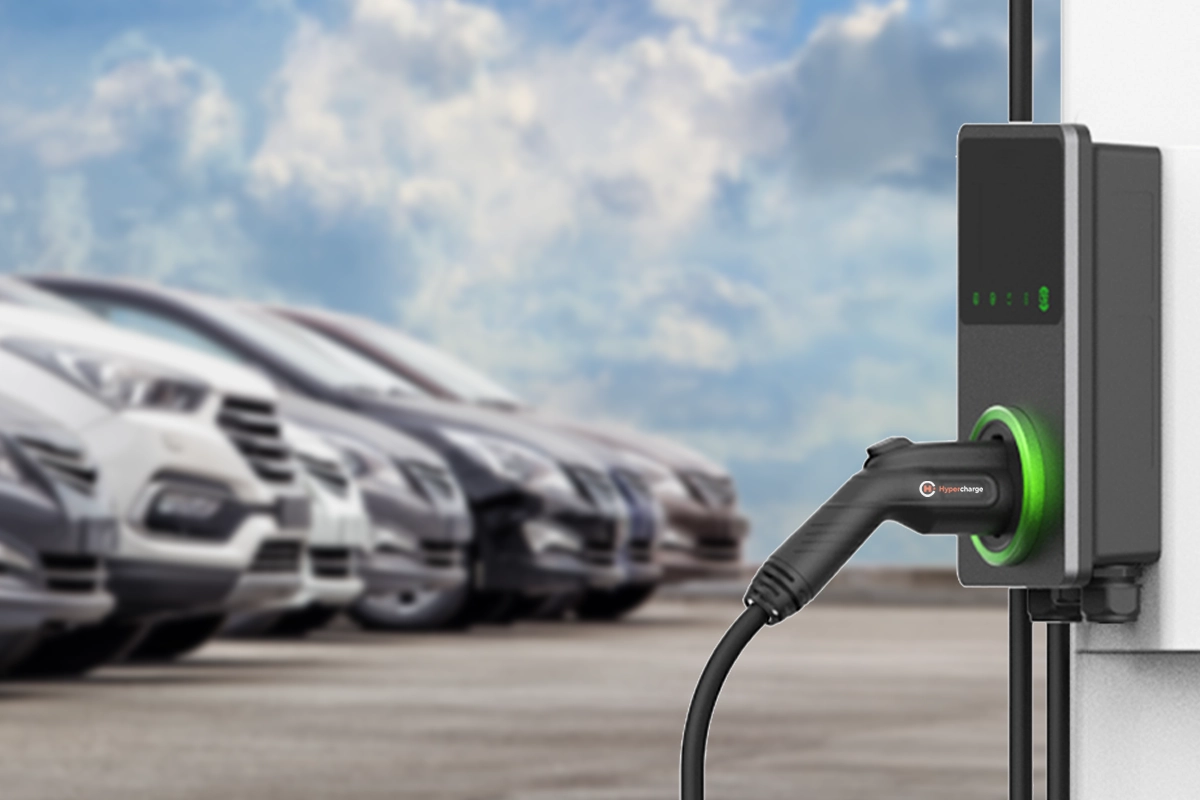Knowledge is power when your auto dealership takes the first steps towards an electric vehicle charging operation.
From our consultative process to our comprehensive dealership EV charging support, we’re not only your faithful partner but your number one resource for essential installation info.
In this ultimate dealership EV charging FAQ, we answer the most frequently asked questions we receive about installing EV chargers at dealerships.
- What kind of EV charging stations do auto dealerships need?
- Will I need to upgrade my electrical infrastructure?
- What if I can’t upgrade the electrical infrastructure right now?
- Who handles the installation?
- How can I reduce startup costs?
- How can I reduce operational costs?
- Is your software compatible with my DMS?
- What does your warranty cover?
What kind of EV charging stations do auto dealerships need?
The starting point for most dealership EV charging operations is a review of current OEM mandates, which specify a minimum number of Level 2 and DC Fast chargers and the electrical infrastructure needed to support them.
We make choosing OEM-compliant chargers simple with two dealership charger packages that meet all technical requirements, one for sites that currently have sufficient available power, the other for those with limited power.
Will I need to upgrade my electrical infrastructure?
Conventional plug-in Level 2 and DC Fast Chargers require a robust power supply to work at full capacity.
That’s why one of the first steps in the installation process is an in-depth site assessment that evaluates your dealership’s power availability, energy consumption, and possible charger locations.
Based on the assessment, we’ll propose a site design that fits your needs, which may include oversizing the infrastructure so you can avoid additional costs if you decide to expand your charging operation in the future.
Hypercharge Pro Tip: Top-notch EV charging site design is about more than nuts and bolts. We’re attentive to the critical details, such signage, lighting, and brand-boosting custom wrapping.
What if I can’t upgrade the electrical infrastructure right now?
Our favourite approach to electrical upgrade requirements is finding creative ways not to require them.
We design customized charging solutions that help dealerships overcome common barriers to installing chargers, such as budget or site constraints.
Who handles the installation?
We work closely with an extensive network of Preferred Partners—highly reputable and experienced EV specialists who join us by your side from the initial site assessment through installation and ongoing maintenance.
We will also happily collaborate with a trusted qualified contractor you have worked with previously.
How can I reduce startup costs?
There are a number of ways we can help you reduce upfront expenses or spread them over time:
Flexible leasing: Our ownership models include flexible leasing options that give you complete control over your charging operation and let you keep all of the revenue from charging fees.
Mobile chargers: If sufficient electrical infrastructure is in place, the mobile MaxiCharger DC Compact can service multiple locations around your dealership, reducing charger purchase costs.
Battery-integrated chargers: Though battery-integrated chargers have a higher sticker price, they can save considerable installation costs by allowing you to avoid or delay electrical upgrades. The XCHARGE GridLink, for example, is a powerhouse DC fast charger that connects seamlessly to existing infrastructure.
Incentives: Canadians can receive up to 30 percent of the unit cost of an eligible battery-integrated charger as a refundable tax credit through Canada’s Clean Technology (CT) Investment Tax Credit (ITC) program*. In the United States, the Alternative Fuel Vehicle Refueling Property Credit covers up to 30 percent of the cost of installing an EV charging property located in a low-income community or non-urban area*. As well, our battery-integrated chargers and plug-ins may be eligible for rebates in your area that reduce the cost of purchasing equipment and/or installation.
How can I reduce operational costs?
With smart power-management strategies, you can significantly reduce your utility bills:
Battery-integrated chargers: Our battery-integrated EV chargers can reach lightning-fast output speed, but may be replenished at a much slower rate, avoiding peak demand charges.
Off-peak charging: Refuel your battery-integrated chargers during off-peak hours and incentivize other users to charge off-peak with variable per-use or subscription rates.
Sophisticated software: With Quantev™ Operations Suite, you can analyze your energy usage to learn when demand is highest, monitor the impact of cost-cutting measures, and observe trends over time.
Hypercharge Pro Tip: Eager to learn more? Our sales specialists and dedicated customer support team are available to answer your questions.
Is your software compatible with my DMS?
Our software integrates with your dealer management system (DMS) for streamlined operations and a smooth charging experience.
Take advantage of a wide menu of business-enhancing tools and functions, such as comprehensive reporting, customized user management, and real-time monitoring of your chargers.
What does your warranty cover?
The Hypercharge Comprehensive Warranty offers peace of mind, with a 98% annual station uptime guarantee and priority on-site repairs within two business days.
You’ll also enjoy premium hardware parts and Proactev™ Priority Coverage—for rapid detection of issues and a response time of four hours or less.
Talk to Hypercharge
As auto dealership charging specialists, we understand the unique opportunities and challenges of the changing EV retail landscape.
Hypercharge delivers advanced EV charging solutions that are tailored to dealerships’ current and future needs and support evolving business models.
Schedule a free EV charging consultation with one of our experts to learn more about how Hypercharge can level-up your dealership success.
*This information provided in this blog is for general informational purposes only and does not constitute legal or tax advice. Eligibility for rebates, tax credits, or other incentives may vary based on individual circumstances. Hypercharge recommends consulting with a qualified tax professional or accountant to understand how these benefits may apply to your specific situation.
